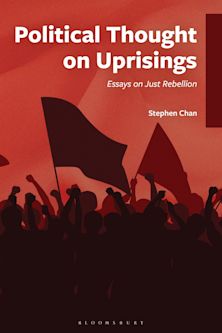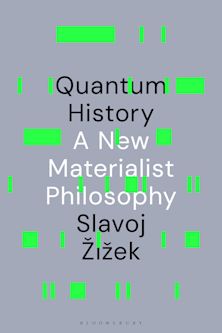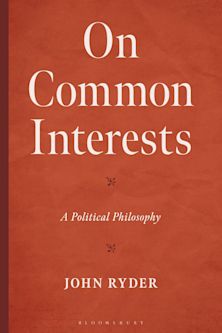- Home
- ACADEMIC
- Politics & International Relations
- Political Theory and Philosophy
- The Politics of Perfection
The Politics of Perfection
Technology and Creation in Literature and Film
The Politics of Perfection
Technology and Creation in Literature and Film
You must sign in to add this item to your wishlist. Please sign in or create an account
Description
The Politics of Perfection: Technology and Creation in Literature and Film provides an exploration of the relationship between modern technological progress and classical liberalism. Each chapter provides a detailed analysis of a film or novel, including Fritz Lang’s Metropolis, Ridley Scott’s Prometheus, Michael Gondry’s Eternal Sunshine of the Spotless Mind, Kazuo Ishiguro’s Never Let Me Go, and Margaret Atwood’s Oryx and Crake. These works of fiction are examined through the lens of political thinkers ranging from Plato to Hannah Arendt. The compatibility of classical liberalism and technology is questioned, using fiction as a window into Western society’s views on politics, economics, religion, technology, and the family. This project explores the intersection between human nature and creation, particularly artificial intelligence and genetic engineering, using works of literature and film to access cultural concerns. Each of the works featured asks a question about the relationship between technology and creation. Technology also allows humanity to create new types of life in the forms of artificial intelligence and genetically engineered beings. This book studies works of literature and film as evidence of the contemporary unease with the progress of technology and its effect on the political realm.
Table of Contents
Chapter Two: The City Divided: Fritz Lang’s Metropolis
Chapter Three: Of Gods and Robots: Ridley Scott’s Prometheus
Chapter Four: The Politics of Remembering: Michael Gondry’s Eternal Sunshine of the Spotless Mind
Chapter Five: The Price of Immortality: Kazuo Ishiguro’s Never Let Me Go and Natural Rights in a Cloned World
Chapter Six: Shiny People, Happy People: Saving the World from Mankind in Margaret Atwood’s Oryx and Crake
Product details
| Published | 07 Oct 2016 |
|---|---|
| Format | Ebook (Epub & Mobi) |
| Edition | 1st |
| Extent | 162 |
| ISBN | 9781498509930 |
| Imprint | Lexington Books |
| Series | Politics, Literature, & Film |
| Publisher | Bloomsbury Publishing |
About the contributors
Reviews
-
The Politics of Perfection shows why and how philosophic thinking need not be confined to formal works of philosophy. Literature and film, when viewed with an eye towards important questions, provide essential fodder to explore life's most challenging unknowns. Hale's analysis helps her readers ask questions about whether or not there is a moral character to science and whether or not there is a human nature. In the end, she explains why it is necessary to ensure the moral character of our society by protecting the rights of the individual to life and liberty.
Erin A. Dolgoy
-
Working at the intersection of literature, film, and philosophy, Hale is able to show the ways artifacts of pop culture are imbued with philosophical insights and the ways political philosophy is both art and science. Her lucid prose makes this book accessible to students and teachers alike. By working through film and literature known well among the artifacts of popular culture, this book is likely to reach a conscientious public for whom technology is simultaneously a threat and a solution.
Eduardo Velasquez, Independent Scholar



































